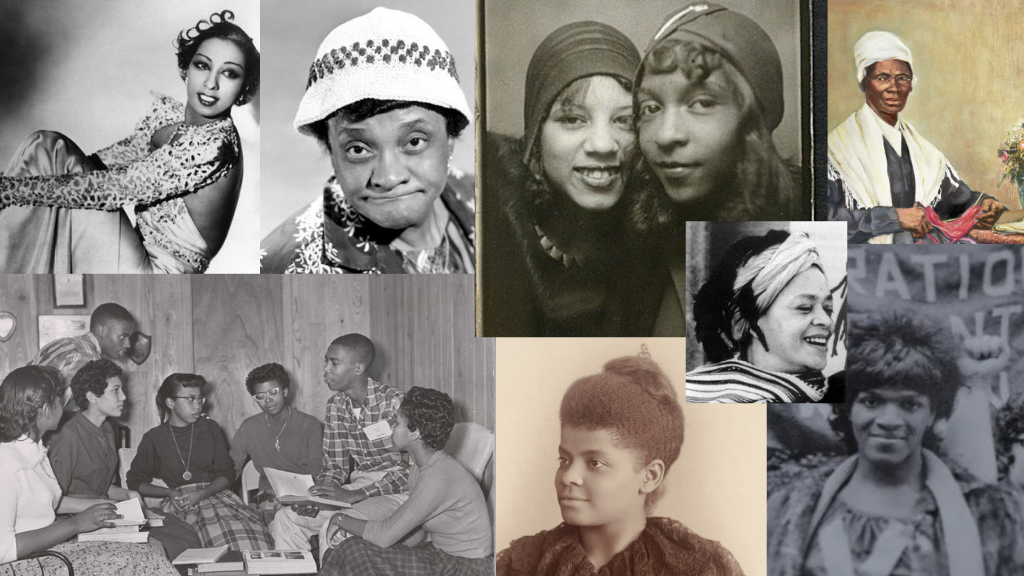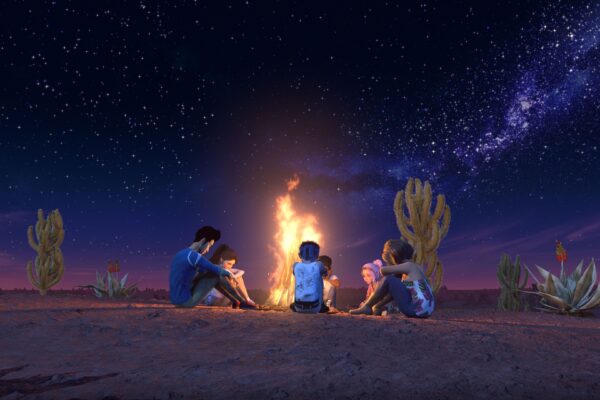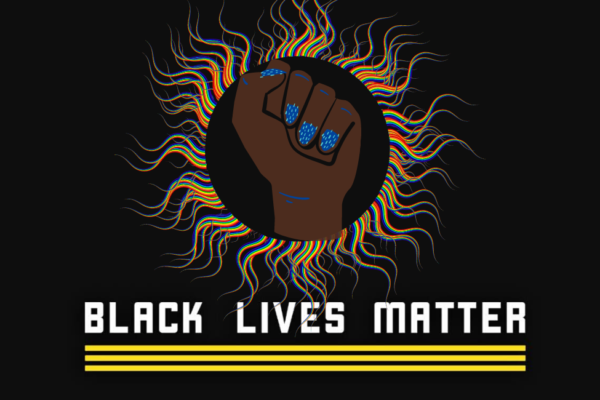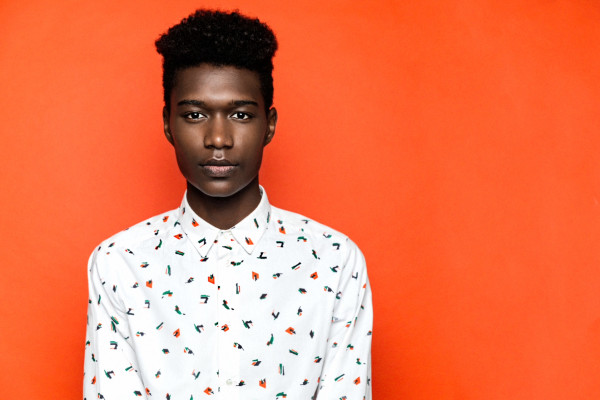Welcome to ‘Monday Musings’!
A new segment from Teenplicity, ‘Monday Musings’ will explore personal interests and thoughts in a multitude of ways. Whether it be through lists, fan interaction, or discussion posts, each week will offer a different topic and new perspective from Teenplicity about what is on our mind. The range of topics, just like our interests, will be vast. Some might be familiar, as it could highlight previous feature stars, while others will discuss uncharted subjects for Teenplicity. They might be fun posts with a silly twist or a more serious discussion about something that could concern you.
The goal is for Teenplicity to become more engaged and involved with our readers. The Teenplicity Team is made up of fans, just like you. Let us know what you care about – a show, a film, music, an event or aspect of your life. There are no limits for what can be explored in ‘Monday Musings’ or how we present it to you.
—
Next Sunday, the Oscars airs with Black Panther, BlackkKlansmen, and Green Book all in the running for Best Picture. Meanwhile, If Beale Street Could Talk was surprisingly snubbed a spot. As with almost every award season, this year’s award season reignited the conversation about telling Black period pieces and black stories. There’s a lot of layers to this conversation. If you read my first Monday Musings Black History Month post, I mention how often times, we’re told half-stories when we’re taught about Black history. This can extend also to our media.
In my personal opinion, Black period pieces can often be hit or miss; when they’re good, they’re very good. But, when they’re made with what feels like ulterior motives–my goodness does it show.
One of the first things someone studying writing, television, film, etc. will learn is about figuring out the audience that you want your work to appeal to. Sometimes, when Black period pieces are made, it doesn’t feel like they’re made for a Black audience. At times, it feels like they’re understandably made for a general audience that includes Black people (I assume this is to make more money) but other times it feels like they’re made by a group of white people for a white audience who is looking to enjoy a racism movie that offers a faux happy ending. I haven’t seen Green Book yet, but from my understanding (and from the trailers) this is apparently Green Book?
So, Black American history is American history. We know this and there’s no denying or debating this the same way that literally anything that has impacted American history is American history. But, issues arise when we don’t get to be the heroes of our own stories. Marginalized folks feeling liberated shouldn’t just exist as a plot point for a privileged protagonist getting to pat themselves on the back for learning how to be a decent human being from a two-hour adventure.
So, for this week, I decided to talk about eight historical Black stories and figures that I think would make very dope television shows, movies, stage show/musical, and/or mini-series. A couple quick disclaimers before we begin: (1) there are so many amazing other stories and figures that aren’t on this list but that doesn’t mean they wouldn’t make dope media, (2) with literally every single one of these ideas, I’m also advocating for them being written and created by all–or predominantly– black creative teams that heavily includes Black women and/or LGBTQ folks, (3) all but one of these eight ideas are ideally biographies, that said, we also deserve Black period pieces that aren’t biographies and aren’t centered around racism and other forms of oppression. And for the record, yes, I’d be down to help write or create literally all of these.
Josephine Baker
Josephine Baker is one of the coolest people that everyone seems to vaguely know but not really know. When I mention her to folks, often times they go “Oh, yeah she was like a dancer, right?” Or they mention the iconic banana skirt. I noted at the preface to this post about how I was mostly focusing on Black American history. Josephine Baker was Black American, however, she thrived mostly in France. That said, even dancing it up in France, Josephine was out here making strides and being the absolute dopest. How many people can put on their resume that they’re a dancer, actor, activist, Harlem Renaissance participator, AND a French Resistance spy who fought against the Nazi regime by giving away confidential secrets and intel in invisible ink on music sheets? Literally only one person: bisexual icon Josephine Baker.
Like many of our iconic Black artists who had a career in the past, the bicon refused to perform in front of segregated crowds and well into her notable career, she denied any invitation to stay at a hotel if they discriminated against Black people. Even though it’s rarely talked about when we discuss it, she played a huge role in the civil rights movement. (Huge enough that supposedly Coretta Scott King suggested she’d take over as the leader of the movement after Dr. King died.) Oh, AND she was also the first African American to star in a major motion picture.
Josephine Baker has already been portrayed numerous times. In fact, Lynn Whitfield (a fellow icon) was the first Black actress to win an Emmy for Best Lead Actress in a Miniseries or Special for portraying her in HBO’s The Josephine Baker Story. But, out of all the times she’s been portrayed, she was mostly portrayed as a side character or guest appearance in someone else’s story. Knowing that I literally only scratched the surface with why she deserves her own movie (or mini-series/tv show because there’s just so much), we could never have too much Josephine Baker content.
Casting suggestion: I’ve been campaigning for Ruth Negga (because she looks EXACTLY like her) but am also game for an unknown getting the role
Little Rock Nine
One of my favorite movies is The Story of Ruby Bridges. When discussing Brown vs. the Board of Education, the case that made the segregation of schools unconstitutional, it’s impossible not to bring up Ruby Bridges or the Little Rock Nine. That said, they weren’t the only Black youth who were tasked with integrating schools and fighting for their lives every day simply just because everyone deserves the right to a good education and systemic racism prioritizes white schools getting a better education than Black and Brown schools. They just happen to be the most well known. What I’d be most interested in regarding media surrounding Little Rock Nine or any group of Black students who played a role in integrating a white school, is to see how they became their own family and formed a safe space together as they entered a space that wasn’t. I’d want a story that didn’t downplay the racism they endured with a white savior, but also doesn’t ignore that they existed outside of the racism they put up with.
There’s a documentary on Little Rock Nine called Nine from Little Rock, but as far as I know, there isn’t a scripted version of the story. There is, however, a very good Drunk History segment told by the amazing Amber Ruffin which I recommend watching.
Casting Suggestion: I don’t really have a list off the top of my head but I do think China McClain would be dope. Maybe Marsai Martin as well and then some up-and-comers?
Toni Cade Bambara
Toni Cade Bambara is one of my absolute favorite writers. She’s one of my biggest inspirations and one of the coolest people to ever exist. I once wrote a nine-page biography on her and gave what I think ended up being like an hour or so presentation on her for my Critical Reading and Writing: Women Writers class. Toni was practically a radical since birth renaming herself when she discovered she was named after her dad’s boss, a white man who definitely wasn’t worth having his name tied to her existence. Growing up in Harlem, she loved film and books and art but was annoyed at how women and women relationships weren’t portrayed as much. She’s best known for being an author, but Toni was also a filmmaker, social activist, and a college professor.
If she doesn’t receive a biographical movie about her life, I think her stories would still make for a great adaptation of something. Her most known body of work is Gorilla, My Love for example, is an anthology filled with multifaceted characters–predominantly young black girls. Even if it’s just a loose adaptation that combines characters or takes the energy of her work into something original, it’s about time we stop sleeping on Toni Cade Bambara.
Casting Suggestion: Lisa Bonet as older Toni
Sojourner Truth and Ida B Wells advocating for black feminism during a very white suffragette movement
When people discuss first wave feminism, it’s usually the very white parts of the Suffragette movement. We hear about Susan B. Anthony fighting for (white) women to get the right to vote. But, and I cannot stress this enough, Sojourner Truth’s “Ain’t I a Woman” speech slaps way harder than just about anything Susan B. Anthony has ever said. And no, this isn’t me pitting women against each other, I’m just stating facts: Sojourner Truth deserves to be the face of the first wave feminist movement. Her “Ain’t I a Woman” speech explains perfectly why she, and other Black women fighting for women’s rights, often get pushed to the back. Sojourner Truth was both an abolitionist and a women’s rights activist. In both movements, Black women were ignored because the concept of intersectionality was ignored. (Kimberlé Crenshaw introduced the theory of intersectionality in 1989 but that doesn’t mean life wasn’t intersectional before then.)
Based on time frames, Ida B Wells and Sojourner Truth probably didn’t cross paths, but Ida B Wells for sure carried on Sojourner’s legacy. As an investigative journalist, Ida B Wells was also one of the founders of the NAACP and educated the public on how prominent lynchings were in America, she was an educator, and she fought for women’s rights. Similar to Sojourner, Ida received criticism from both civil rights activists and women’s suffrage activists for centering Black women in her work and refusing to only acknowledge one part of her identity.
I’ve mentioned this before on Twitter, but I’d give so much to see a show or a movie around Black suffragettes who also fought for civil rights and these are just two very strong examples of story material we have to draw from.
A non-whitewashed Stonewall Riots
In 2015, the movie Stonewall released as a coming of age story where the protagonist was a fictional gay white teenage boy who leaves conservative Indiana to be in “more liberal” New York. I’ve never watched the movie, but I have read the criticisms surrounding it most of which surrounds around the idea of whitewashing. It’s important that Black history include Black LGBTQ history and that LGBTQ history include Black history. Black trans women, lesbians, and drag queens were all very crucial to the gay liberation movement of the 60s and it’s hard to imagine what the movement would have ever looked like without them.
I won’t pretend to be completely educated on the gay liberation movement or even Stonewall for that matter because it benefits neither me nor you as the reader. (I also recommend just reading up on all of these people and events I mention in general. I can’t share all of the information about them in like 2-3 paragraphs. A few notable people to read about in the Stonewall Riots include Marsha P. Johnson, Sylvia Rivera, Stormé DeLarverie, and Thomas Lanigan-Schmidt.) But, that’s partially the point for why I think we need to see this portrayed more in media. There are multiple documentaries, including one about Marsha P. Johnson by trans activist, filmmaker, and writer Tourmaline but, surely there’s room for some coming of age stories surrounding Stonewall that explores being black and a part of the LGBTQ community while also experiencing the civil rights movement.
Moms Mabley
Moms Mabley is someone I learned about for the first time by watching The History of Comedy documentary on CNN. She was a part of African American vaudeville and her career spanned from 1919 to her death in 1975. Moms Mabley got her name from carrying a motherly role for the other comedians she worked with and is one of the first openly gay comedians. She was incredibly edgy for her time, but not in the way that people label comedians edgy now where the person is just saying trash statements and labeling it as a joke to discredit any criticism. She managed to be labeled the funniest woman in the world catching the eye of white audiences even as she did sets calling out racism, sexism, and sharing her experiences as a lesbian. Some of her sets were also supposedly extremely vulgar.
I just really wanna stress how badly I think Octavia Spencer could nail playing her in a movie because Octavia Spencer could nail playing her in a movie. Please cast Octavia Spencer in a movie playing Moms Mabley.
Casting Suggestion: Octavia Spencer (I meannn, come on)
Bessie Coleman
So, we all know who Amelia Earhart is. And indeed, she is amazing and dope and deserves love for being the first woman aviator to fly solo across the Atlantic Ocean. But, you know who else is amazing and dope and deserves love for being the first woman to do something? Bessie freaking Coleman who was the first woman of African American descent and the first person of Native American descent to hold a pilot’s license. She had to go to France in order to even get her license because the United States, ever on brand, didn’t offer opportunities for women, African Americans, or Native Americans to become pilots in the 1910s/1920s.
Bessie Coleman was so iconic that she was given the nickname Queen Bess. She was a ridiculously talented stunt flyer who was complimented for having a “flamboyant style” and dedication to her craft. And she made sure that if she was going to perform for a crowd, the group had to be desegregated. It was important to her that she’d be a role model and could inspire other Black youth to become aviators and as a result, she also looked to avoid participating in stereotypical events or invitations. She sadly died young but had plans to establish a school for young Black aviators.
Casting Suggestion: A biracial actress that’s African American and Native American, please!!!
Black Flappers in the 1920s and the Harlem Renaissance
And we find ourselves back to the 1920s and the Harlem Renaissance! Flapper culture is one of the most interesting youth cultures to me. (The 1920s in general, I’m always down to discuss it.) It was a version of rebellion that shares many similarities to how many young women present themselves now. In the 1920s, when girls were told to be overtly feminine and quiet and well behaved and other condescending expectations, young women were cutting their hair short, adopting a loose fitting and short dress approach after years of corsets and covering ankles, they listened to jazz… (It’s…more rebellious than it sounds trust me…) Essentially, they were hotline blinging: wearing less and going out.
There’s a lot more to it than just the aesthetic. But the aesthetic is pretty dope and I love it. Anyway, I’d love a coming-of-age story about a girl growing up in Harlem or Chicago (or her family moving to these places from the south for better opportunity or jobs because the Great Migration y’all) and she starts denying gender norms by getting into flapper culture and Black art. Someone work on developing this story with me pleaseeeeee.
Casting Suggestion: Kiki Layne and Lovie Simone are the two best friend leads, everything else we can discuss at a later time
—
Did you like ‘Monday Musings’? If so, you’re in luck! Each week, Teenplicity will feature a new ‘Monday Musings’ post about things we are looking forward to, topics close to our hearts, or suggestions from readers!




